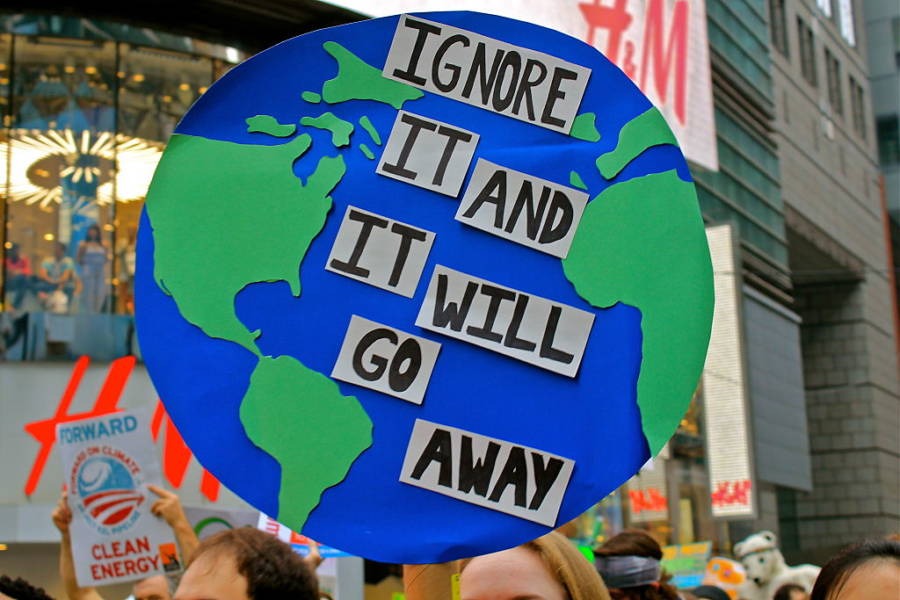A new study says that human activities are indeed altering the environment — by killing off swaths of it.

Keith Getter / Getty Images
“Imagine being a scuba diver and leaving your air tank behind you on a dive,” a new study suggests.
Or maybe a skydiver without a parachute, a mountain climber without a rope — the list of metaphors goes on.
Either way, you’re screwed. As is, according to the research from the University of Minnesota and McGill University, our planet.
“Human activities are driving the sixth mass extinction in the history of life on Earth, despite the fact that diversity of life enhances many benefits people reap from nature, such as wood from forests, livestock forage from grasslands, and fish from oceans and streams,” Forest Isbell, the paper’s lead author, said. “It would be wise to invest much more in conserving biodiversity.”
A quarter of mammals and over one-tenth of birds are currently threatened with extinction.
The endangerment rates of these creatures is “similar at present to those of the five global mass-extinction events of the past 500 million years that probably resulted from meteorite impacts, massive volcanism and other cataclysmic forces,” the report reads.
We, in and of ourselves, are a cataclysmic force.
The good news? The report’s authors think it’s not too late to pull ourselves from the brink. One of the keys, they wrote, lies in a drastic change to human diets and farming techniques.
Another crucial step is increased conservation investment, since “the value humans derive from biodiversity is 10 times what every country in the world put together spends on conservation today.”
This report, ironically enough, was published on the same day Donald Trump withdrew the United States from the historic Paris Climate Agreement — despite the fact that majorities in every single state (7 out of 10 Americans overall) supported the deal.
Pres. Trump says withdrawing from the Paris agreement “protects the United States from future intrusions on the United States’ sovereignty” pic.twitter.com/1RqQCKSgBn
— ABC News Politics (@ABCPolitics) June 1, 2017
Now it seems the task of pulling our planet back from the edge might fall to the country’s other main polluters — China and India — both of which are already on track to exceed their Paris agreement commitments.
Next, see why rising sea levels will disproportionately affect the U.S.. Then, learn Antarctica is turning green.





